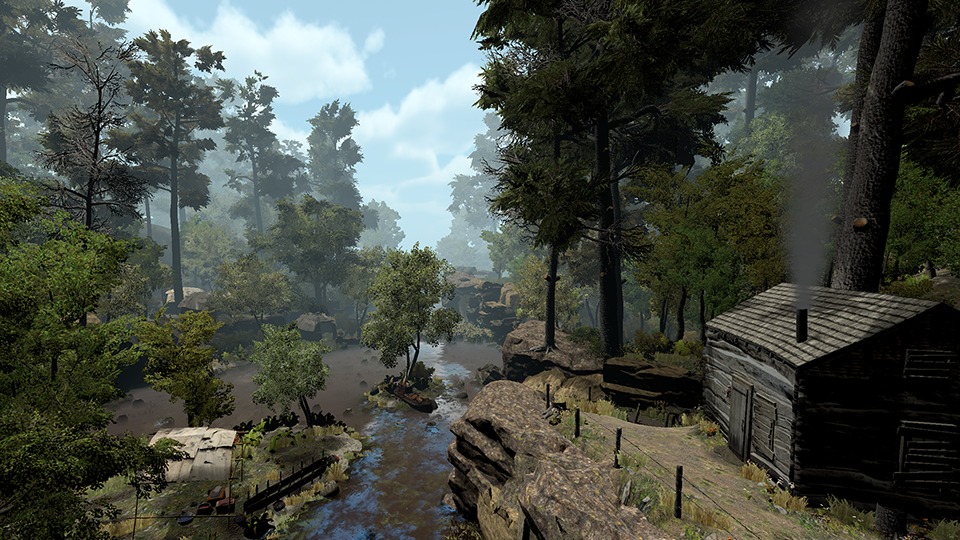
Travel back in time by playing ‘Tombeaux’
Fifty years ago, a student-teacher in Northfield, Minnesota, developed one of the first educational computer games in history. The Oregon Trail let players take a trip west in 1848, trying to get from St. Louis to the fertile farmlands of Oregon’s Willamette Valley by covered wagon. Not only was it groundbreaking, it was also immensely popular through subsequent versions.
The real Oregon Trail was about 2,000 miles long. Educational games have come about that far in the past 50 years.
Tombeaux, a game with Science Museum of Minnesota roots, is an interactive experience that shares the history and environmental story of the St. Croix River on the border of Minnesota and Wisconsin. Developed by Dave Beck, it immerses players in a shifting environment over two significant centuries.
Beck compares educational games to documentary films. He says playing such a game can expand horizons in more than one way.
If The Oregon Trail is about trying to survive an arduous journey propelled by Manifest Destiny, Tombeaux is a witness to the impacts of colonialism—drastic, rapid changes which were felt by native people and the river. It also gives players a sense of the river’s power to prevail.
Both games take the student from observer to participant. Both give players a chance to walk in the shoes of historic characters, and talk to others representing a range of voices. Beck says he would love to see his game used in classrooms and similar spaces.
“Tombeaux encourages the player to take their time as they investigate and wander through its world. My hope is they will forget they are playing a game but instead experiencing an interactive, historical movie of sorts,” he says.
A game like Tombeaux can do more than just share the people and dates of history, but also the complex reasons behind the stories.
A professor and dean at the University of Wisconsin-Stout, Beck released Tombeaux in 2018, after more than three years of work. He came up with the idea for the project and began working on it while in the Artist at Pine Needles residency program, operated by the Science Museum’s St. Croix Watershed Research Station.
As an artist-in-residence at the Pine Needles cabin on the river, he would spend the first part of every day walking around the 17-acre property, exploring and photographing, finding inspiration related to the local ecology and its human history. He would spend the second part of each day diving into tutorials about game development.
Eventually, the conceptual and technical research would begin to overlap, and an idea started to form that connected to the medium and captured his imagination.
“That's the important part of a residency, especially if you're going to have a month, there's enough time to be able to kind of break yourself away from how you think normally and how you approach and meditate on ideas normally, and really become engrossed in whatever it is that you end up discovering,” Beck says.
The river helped him break out of his usual thought patterns. Once, when it was flooded, Beck paddled the cabin’s canoe out to submerged islands. The water had started to come down a little since its peak, and there was a mark on the trunks of big silver maples where the river had reached.
“I realized I had such a fascination with water and how that completely changes the environment and can be devastating, can be powerful, and nutritional, in terms of light-giving,” Beck says. He decided to see how he “could use the river and the water, not necessarily as a mechanic, but as a hook to tell a story in a certain way.”
Tombeaux was the result of that inspiration. Ultimately, it’s a game about our always-changing world. The only constant is that nothing stays the same, and the St. Croix River has been an important force over the centuries.
The river was the main transportation route for people for millennia. When Europeans arrived, the St. Croix brought logs downstream and boats full of immigrants upstream. Today, it’s a major recreational resource and a priceless nature preserve.
Half a century after The Oregon Trail, the story of historical computer games is still being written. Tombeaux is an exciting chapter.